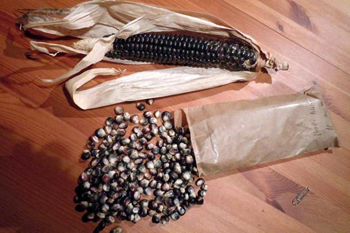Leading physicians are celebrating a small dose of good news that arrived Tuesday about dexamethasone, a cheap and widely used steroid shown to be able to save lives among COVID-19 patients, but also cautioning against releasing study results by press release during a global health emergency, like in the case of the latest dexamethasone study by University of Oxford.
"It will be great news if dexamethasone, a cheap steroid, really does cut deaths by one-third in ventilated patients with COVID19, but after all the retractions and walk backs, it is unacceptable to tout study results by press release without releasing the paper", Atul Gawande, surgeon and CEO of Haven Healthcare, tweeted.
"Bottom line is, good news," Dr. Fauci, America's foremost infectious diseases expert told a US newswire on Tuesday, soon after the dexamethasone results were announced in the UK.
Fauci, who has long championed the therapeutics-first view said that dexamethasone is a "significant improvement" in the available therapeutic options currently available.
On Medical Twitter and Facebook, doctors broadly agree that dexamethasone use aligns well with the way COVID19 attacks the body's immune system. Fauci said the results in the Oxford study make "perfect sense" in that context.
"We should see the number of people who actually survive go up, if the study holds up," virologist and epidemiologist Dr. Joseph Fair told a television network.
Global coronavirus cases crossed 8 million on Tuesday. In the US, Texas and Florida are facing a new wave of cases after lifting lockdown orders earlier than medical experts recommended. Amidst the relentless graph upwards, the dexamethasone study results injected hope for better survival rates among those most seriously ill.
World Health Organization chief scientist Soumya Swaminathan welcomed the results from the randomised control trial.
Dr Eugene Gu, Founder and CEO of CoolQuit tweeted that he is "genuinely impressed" with the UK dexamethasone trial. This may be a "game changer", he wrote.
"There's no conflict of interest as dexamethasone is a generic steroid. The mechanism of action makes sense because steroids can reduce cytokine storms and overactive immune systems that makes COVID-19 so deadly. The number needed to treat is 8 ventilated patients which is great."
The Oxford study found that dexamethasone reduced deaths by 35 percent in patients who needed treatment with breathing machines and by 20 percent in those only needing supplemental oxygen. Dexamethasone was one of 5 drugs studied in a large clinical trial in the United Kingdom named RECOVERY, short for Randomised Evaluation of COVID-19 Therapy.
Peter Horby, chief investigator of the University of Oxford clinical trial, said dexamethasone is the first drug to be shown to improve survival in COVID-19. Details of the study have not been released. The trial organisers said they made their announcement via a news release because of "the public health importance of these results." According to Horby's public comments, there was a lot of initial resistance to studying steroids.
During the study, 2,104 patients were randomly selected to be given 6 milligrams of dexamethasone once a day (either by mouth or by intravenous injection) for 10 days. That group was compared with 4,321 patients who received the usual care alone.
Researchers estimated that dexamethasone would prevent one death for every eight patients treated while on ventilators and one for every 25 patients on extra oxygen alone.
UK experts have called the study results a breakthrough in the fight against the virus. The researchers have promised they would publish the results soon.
 In the study, a rat model of metabolic syndrome fed a high-sugar and high-cholesterol diet and given blue maize extract showed significant improvement in systolic blood pressure, high density lipoprotein (HDL) cholesterol, and triglyceride levels compared to those not given the extract.
In the study, a rat model of metabolic syndrome fed a high-sugar and high-cholesterol diet and given blue maize extract showed significant improvement in systolic blood pressure, high density lipoprotein (HDL) cholesterol, and triglyceride levels compared to those not given the extract.




Comments
Add new comment